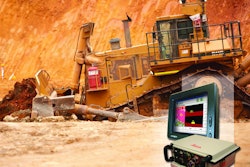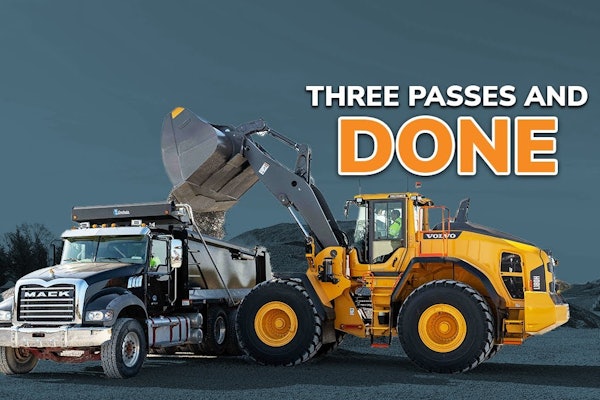Recession ruthless to equipment distributors.
By John Latta, Tina Grady Barbaccia and Tom Anderson
Just as a rising tide is said to have the power to lift all boats, the Great Recession apparently leaves no-one behind. Equipment distributors have taken a pounding.
While that’s a statement not likely to surprise anyone in the industry, the Associated Equipment Distributor’s (AED) 2010 Government Affairs Survey provides a snapshot of just how much they are hurting.
Here’s AED’s summary of the findings from the survey conducted in early April:
Since January 2007, AED members have taken difficult and painful steps to keep their companies in business, including the following:
75 percent of AED members have laid off workers;
68 percent have eliminated positions through attrition;
64 percent have reduced salaries and wages;
64 percent have sold equipment from their rental fleets at a loss;
36 percent have reduced health insurance benefits;
32 percent have suspended participation in a workforce development program (e.g., training
partnership with a local community college);
21 percent have cancelled the opening of a new facility; and
17 percent have closed one or more facilities.
AED says the survey found that, on average, companies that reduced their workforces cut employment by 23 percent since 2007.
A 2009 IHS Global Insight study estimated the equipment industry’s workforce had contracted by 37 percent since the start of the recession. This was a broader study of the industry. AED only surveyed members. Fundamentally, AED says the survey results reinforce IHS Global Insight’s original determination that the economic downturn has taken a devastating toll on equipment distributors and their employees.
The credit crunch has also taken a huge toll on equipment distributors. A stunning 80 percent of survey respondents said they had lost revenue over the past year because a qualified customer (or customers) could not get credit to finance equipment purchases. Forty percent report losing more than $1 million in revenues. AED reckons, using what it calls an extremely conservative estimate, that survey respondents have together lost $75 million in revenues because of customer credit issues.
“When the results are projected across AED’s entire U.S. distributor membership,” says AED, “equipment distributors have conservatively lost more than $475 million in revenues over the past year because equipment purchasers could not find financing. By combining the results of this survey and last year’s (which asked the same question), AED estimates that its members have lost more than $1.2 billion during the past two years because of credit issues.
The “stimulus” legislation has been a little bit of a silver lining for battered distributors.
AED says survey results show that “the stimulus bill’s infrastructure spending had some impact on equipment sales, as well as on equipment rental and product support business. However, the most benefit came from the capital investment incentives (50-percent depreciation bonus and increased Sec. 179 expensing levels), AED reports. Twice as many members report sales attributable to the capital investment incentives as to ARRA’s infrastructure spending, according to AED.”
Specifically:
36 percent of respondents said the ARRA’s 50-percent depreciation bonus and increased Sec. 179 expensing levels motivated equipment purchases at their companies last year;
29 percent said the ARRA’s infrastructure spending created product support business at their companies;
29 percent said the ARRA’s infrastructure spending resulted in increased equipment rentals at their companies;
19 percent said that ARRA’s infrastructure spending resulted in used equipment sales at their companies; and
18 percent said the ARRA’s infrastructure spending resulted in new equipment sales at their companies.
The survey asked AED members to rate various policy solutions AED is advocating to help recovery. Top choice: enacting a new multiyear highway bill that increases investment in roads, bridges and transit. Such a bill, says AED, would create equipment industry jobs and help struggling OEMs by increasing demand for equipment. Almost seven out of 10 (69 percent) survey responders said they would add equipment to their rental fleets if Congress passed such a bill. Almost half (46 percent) said they would rehire laid off workers and more than a third (37 percent) said they would add new positions.
 pASsw*rd1
pASsw*rd1
After a hacker broke into a website and stole 32 million passwords – and published them – an analysis of the codewords came up with a list of the top ten really bad passwords people use.
1. 123456
2. 12345
3, 123456789
4. Password
5. iloveyou
6. princess
7. rockyou
8. 1234567
9. 12345678
10. abc123
The report is of course useful for those of us who get a little lazy with passwords. It explains how super-technology-savvy hackers can break into sites with computers that come up with our bad passwords in seconds. But it is also valuable for contractors or agencies that have a lot of computers – both in the field and in offices. The report is also loaded with password information that can help IT managers.
The analysis was done by Imperva, and the company’s White Paper Report (find it an Imperva.com) shows that despite what we thought was increasing sophistication on the part of web users, bad passwords have been the rule for 20 years.
So what makes a good password according to the report? A simple rule of thumb says it should contain at least eight characters, and it should contain a mix of four different types of characters – upper case letters, lower case letters, numbers, and special characters such as !@#$%^&*,;” If there is only one letter or special character, it should not be either the first or last character in the password.
Imperva’s report also cites expert Bruce Schneier who advises “take a sentence and turn it into a password. Something like “This little piggy went to market” might become “tlpWENT2m”. That nine-character password won’t be in anyone’s dictionary.” Schneier also says use a different password for all sites – even for the ones where privacy isn’t an issue.
To help remember the passwords, Imperva folks suggest writing them down and put the paper in your wallet. “But just write the sentence – or better yet – a hint that will help you remember your sentence.”
One last piece of advice. Never trust a third party with your important password.
Oh, and why is rockyou on the list? Because that was the name of the hacked site. Guess what the people who used this use when they choose a password for Facebook. v
 Stormwater regs change course
Stormwater regs change course
EPA is continuing work on a first-time national rule that would set new standards to control stormwater discharges from developed sites, due by November 2012.
Associated General Contractors of America (AGC) says that as a result of its advocacy work, “EPA has decided to not require contractors to respond to a lengthy, mandatory survey that will guide and inform future requirements pertaining to long-term stormwater control practices, recognizing that contractors are not responsible for designing, financing, operating or maintaining post-construction (permanent) stormwater controls.”
EPA initiated a national rulemaking to establish a program to reduce stormwater discharges from new development and redevelopment and make other regulatory improvements to strengthen its stormwater program, says AGC. Last year EPA indicated that it would be asking contractors questions that AGC estimated would have taken a construction firm between 120 to 150 hours to complete.
 Slowpokes and Congestion
Slowpokes and Congestion
First, the state law was enacted; then, a grace period allowed for driver education. Now, though, it’s time for slowpoke drivers to either get out of the left lane on U.S. 84 or pay up, warns the Sheriff’s Office in Concordia Parish, Louisiana.
A state law that went into effect in 2009 forbids vehicles in the left lane on multi-lane roads from traveling at a slower pace than traffic in the right lane. Since then, people in his jurisdiction located across the Mississippi River from Natchez, Miss. have been given time to adjust, says Concordia Sheriff Randy Maxwell. From now on, the law will be vigorously enforced, particularly on a portion of U.S. 84 known locally as the Ferriday-Vidalia highway, reports The Natchez Democrat.
“The highways in Concordia Parish – particularly in the early morning and late afternoon – are terribly congested,” says Maxwell. “People who are in that left lane and driving along at approximately 40 miles per hour or thereabouts are causing havoc on the roadways. This can only lead to chaos and tragedy.”
A similar Louisiana law bans “rolling roadblocks” – the act of vehicles traveling at the same speed side by side.
 Build, Baby, Build
Build, Baby, Build
Part of the reauthorization debate in Washington is a sometimes heated discussion about whether the future of our transportation system relies primarily on building new roads or taking better care of our existing roads. In other words do we have enough roads already? If we do, goes one side of the argument, we could function with less money in the Highway Trust Fund (thus solving, or at least taking much of the sting out of, the problem of whether to increase gas taxes, a major relief for our elected representatives in D.C.)
But the states don’t buy into the argument.
As the evidence shows, travel is greatly out-distancing available room on the roads, according to the American Association of State Highway and Transportation Officials (AASHTO), a body which makes the case for increasing the nation’s transportation capacity.
“While congestion levels declined with the recession, congestion is now returning, costing millions in lost time and productivity. Capacity increases are needed in transit, rail, and particularly in highways,” says AASHTO executive director John Horsley
“Even with strategies to reduce traffic and improve transit, highway system expansion is critical,” said AASHTO President Larry “Butch” Brown, director of the Mississippi Department of Transportation. “If most or all of our capital investment were made in system rehabilitation and little to none in adding needed capacity, road conditions would improve, but traffic would grind to a halt.”
 “The good old times are coming back.”
“The good old times are coming back.”
… at least in Europe’s construction industry
Despite Iceland’s high-flying volcanic ash interrupting air travel, bauma, the world’s leading trade fair for the construction machinery industry, hosted more than 415,000 visitors from more than 200 countries in Munich, Germany, in April.
The show, held every three years, also reported a record number of exhibitors and exhibition space. Almost half the exhibitors expected the economic situation to improve, according to a survey of the exhibitors.
The show’s organizers said the event “marked a turnaround in the international construction machinery industry, ushering in the hoped-for change in sentiment. And this was despite the ban on air travel which impacted on the first few days of the fair.”
“The mood in the industry shows that in Europe the bottom of the cycle is now behind us. Confidence has returned,” said Ralf Wezel, secretary-general of the Committee for European Construction Equipment.
Although the air travel ban prevented visitors and approximately 50 exhibitors from getting to the fair, the mood at the venue among the approximately 3,150 registered exhibitors from 53 countries was good by the close of the fair, said show organizers. By the mid-way point of the fair, said bauma, a number of exhibitors were reporting more sales than they had expected.
“The good old times are coming back,” said Michael Heidemann, managing director of Zeppelin and CEO of Zeppelin Baumaschinen GmbH, Germany. “The figures for sales taken at the fair far exceed our expectations. We reckon we will be able to match the volume we took at the record bauma in 2007.”
Michikazu Okada, vice-president of Hitachi Sumitomo Heavy Industries Construction Crane Co., Ltd., Japan said, “We had a lot of new business opportunities some of which already resulted in unexpected conclusions of sale.” v











